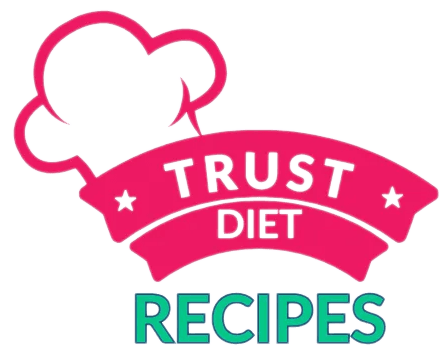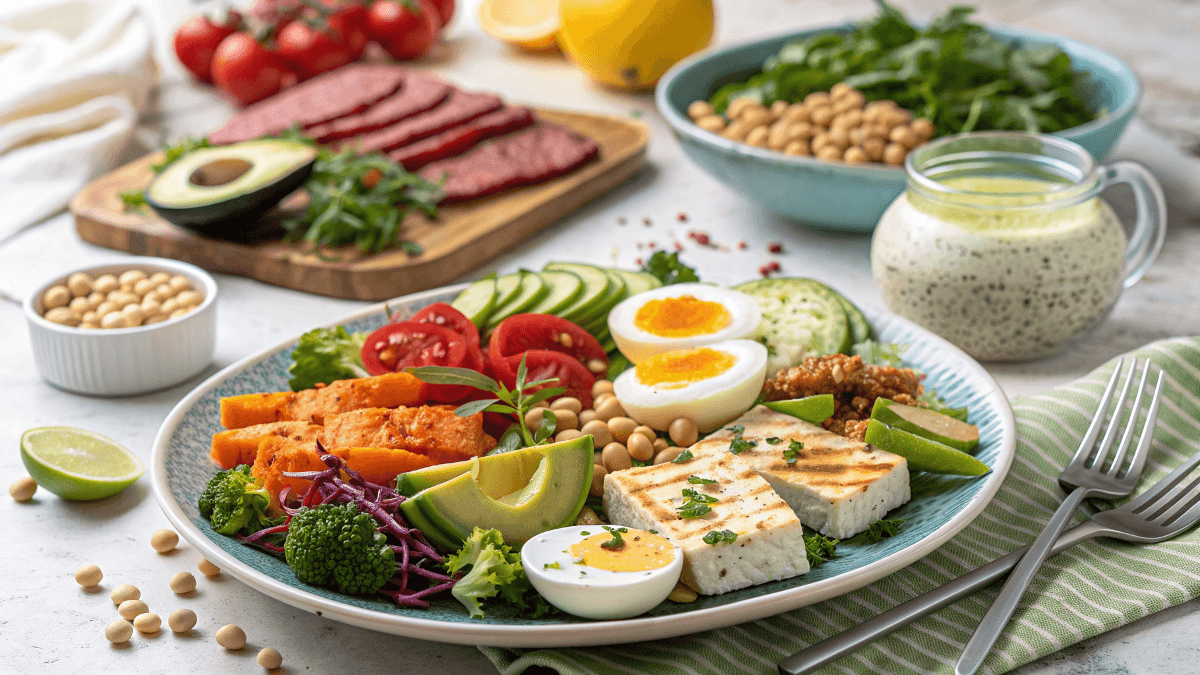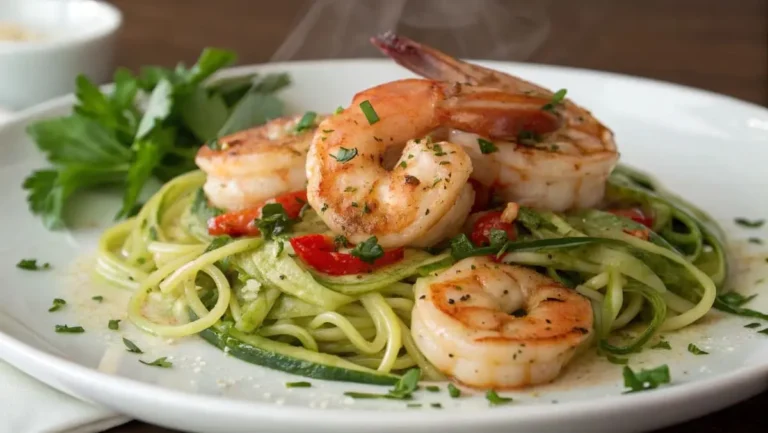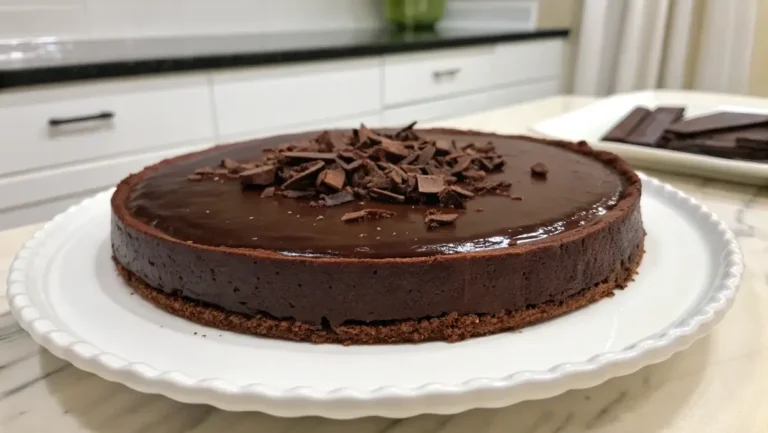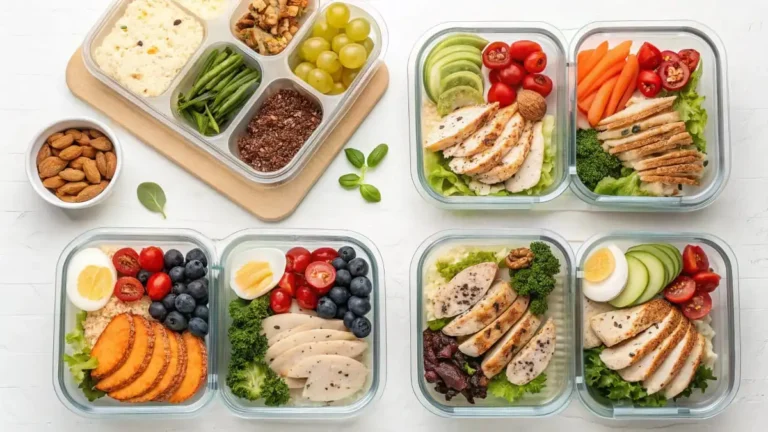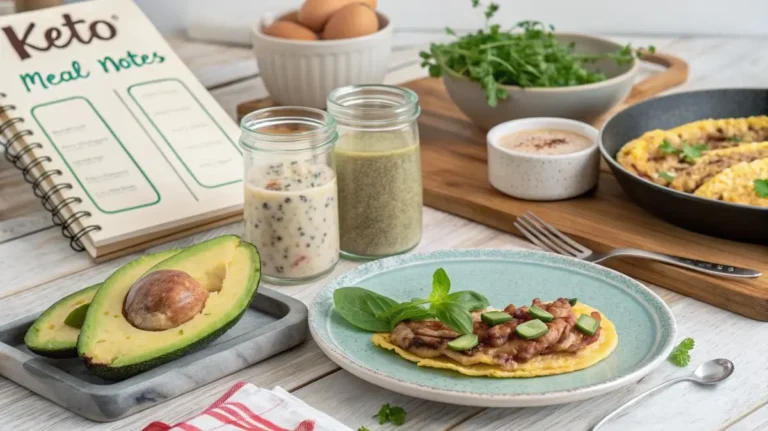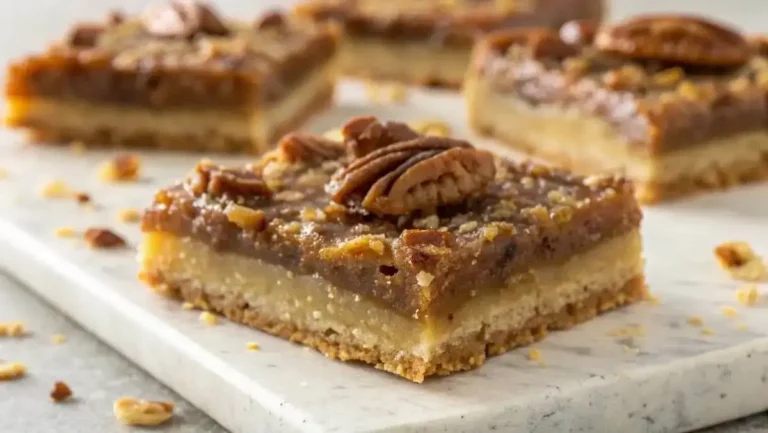7-Day Keto Meal Plan for Vegetarians: Easy Guide
I’ve tried many diets, but the keto diet was tough as a vegetarian. It needs careful planning to get the right nutrients. Medical News Today says a keto diet is about 55% to 60% fats, 30% to 35% protein, and 5% to 10% carbs.
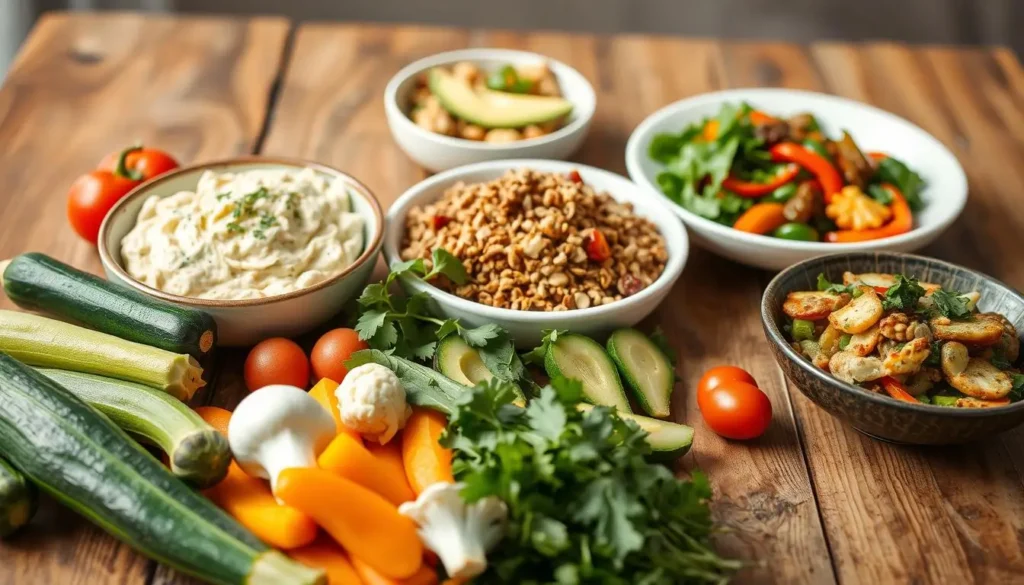
Starting a vegetarian keto diet can seem hard, but it’s doable with the right help. This article will guide you through a 7-day keto meal plan for vegetarians. It includes keto recipes for vegetarians and tips for a smooth start.
Table of Contents
Key Takeaways
- Understanding the basics of a vegetarian keto diet
- Benefits of following a keto diet as a vegetarian
- Simple tips for planning your meals
- Delicious and easy-to-make keto recipes for vegetarians
- A 7-day meal plan to get you started
Understanding the Vegetarian Keto Diet
The vegetarian keto diet combines vegetarianism with the ketogenic diet’s high-fat, low-carb foods. It needs careful planning to get enough protein and nutrients.
Vegetarians can use high-fat plant-based foods, eggs, and dairy to meet their needs. It’s important to choose whole, nutrient-dense foods.
What Makes Keto Different for Vegetarians
A vegetarian keto diet doesn’t include meat, so finding other protein sources is key. Plant-based protein sources like tofu, tempeh, and seitan are vital.
Key Principles to Follow
To follow a vegetarian keto diet, focus on:
- High-fat plant-based foods like avocados and nuts
- Low-carb vegetables such as leafy greens and broccoli
- Protein-rich foods like eggs, dairy, and plant-based protein sources
Here’s a comparison of macronutrient distribution for a standard keto diet and a vegetarian keto diet:
| Macronutrient | Standard Keto Diet | Vegetarian Keto Diet |
|---|---|---|
| Fat | 70-80% | 70-80% |
| Protein | 15-20% | 15-20% |
| Carbohydrates | 5-10% | 5-10% |
By understanding these principles and making informed food choices, vegetarians can successfully adopt a keto lifestyle.
Benefits of Following a Vegetarian Keto Diet
Starting a vegetarian keto diet can change your health and help the planet. It mixes the keto diet with vegetarian eating. This way, you get the best of both worlds.
Health Advantages
A keto diet can help with type 2 diabetes, studies show. A vegetarian keto diet can also lead to weight loss and better blood sugar control. Here are some health benefits:
- Improved heart health with lower triglycerides and higher HDL cholesterol
- Better mental clarity and focus
- Potential benefits for some neurological conditions
Environmental Impact
A meatless keto meal plan cuts down on carbon emissions. It focuses on plant-based foods, making it better for the planet. Some environmental perks include:
- Less greenhouse gas emissions from animal farming
- Less water use, as plant-based diets need less water
- Helping biodiversity by reducing meat demand
Adding keto recipes for vegetarians to your diet can be rewarding. It lets you enjoy a vegetarian keto diet while helping the environment.
Common Challenges and How to Overcome Them
Following a keto diet as a vegetarian can be tricky. You need to plan carefully and think creatively. Understanding these challenges and finding solutions is key to success.
Protein Sources Without Meat
Vegetarians can get protein from eggs, dairy, and plants like nuts and seeds. Here are some high-protein foods for a keto diet:
- Eggs
- Greek yogurt
- Almonds
- Chia seeds
- Tofu
Adding these protein sources to your meals is simple and tasty. Try a Greek yogurt parfait with nuts and seeds for breakfast. Or, have hard-boiled eggs as a snack.
Maintaining Nutritional Balance
It’s important to keep your diet balanced on a vegetarian keto diet. Watch out for vitamin and mineral deficiencies. A diet rich in low-carb veggies, healthy fats, and proteins helps meet your nutritional needs.
| Nutrient | Vegetarian Keto Sources |
|---|---|
| Vitamin B12 | Dairy products, eggs, supplements |
| Omega-3 | Chia seeds, walnuts, algae oil |
| Iron | Spinach, tofu, pumpkin seeds |
Knowing about possible deficiencies and eating a variety of nutrient-rich foods is key. Plan your meals around these foods for easy vegetarian keto meal prep.
Essential Foods for Your 7-Day Keto Meal Plan Vegetarian Journey

To follow a vegetarian keto diet, knowing the key foods is vital. A good vegetarian keto diet includes foods low in carbs but high in nutrients. This helps you stay on track.
Vegetarian Protein Sources
Protein is key in any diet. Vegetarians can get protein from eggs, dairy, and plant-based foods like tofu and tempeh. Nuts and seeds, like almonds and chia seeds, are also great protein sources. Adding these to your vegetarian keto meal prep ensures you get enough protein.
Low-Carb Vegetables
Low-carb veggies are the heart of a keto diet. Choose leafy greens, broccoli, and cauliflower. These veggies are low in carbs but full of vitamins and minerals. They’re vital for a healthy plant-based keto meal plan.
Healthy Fats
Healthy fats are essential for a keto diet. They give you energy and support your health. Include avocados, olive oil, and nuts in your meals. These foods are full of healthy fats, making your keto recipes for vegetarians tasty and good for you.
By focusing on these food groups, you can make a balanced vegetarian keto diet. It supports your health and wellness goals.
Foods to Avoid on a Vegetarian Keto Diet
Following a vegetarian keto diet means avoiding high-carb foods. These foods can throw off your metabolic state. Knowing which foods can kick you out of ketosis is key.
High-Carb Plant Foods
Some plant-based foods have too many carbs for a keto diet. Grains like rice, wheat, and oats are off-limits. Legumes, including beans, lentils, and peanuts, are also too high in carbs.
Starchy vegetables like potatoes, corn, and peas also have too many carbs. To stay in ketosis, limit or avoid these foods. Instead, choose low-carb veggies like leafy greens, broccoli, and cauliflower.
| High-Carb Foods | Low-Carb Alternatives |
|---|---|
| Grains (rice, wheat, oats) | Vegetable-based alternatives (cauliflower rice, zucchini noodles) |
| Legumes (beans, lentils, peanuts) | Nuts and seeds (almonds, chia seeds, flax seeds) |
| Starchy vegetables (potatoes, corn, peas) | Low-carb vegetables (leafy greens, broccoli, cauliflower) |
Hidden Carbs to Watch For
Even without obvious high-carb foods, hidden carbs can sneak in. Many sauces, condiments, and processed foods have added sugars or starches. These can add up quickly.
Always read labels carefully. Choose products labeled as “low-carb” or “sugar-free.” Watch portion sizes, as even keto-friendly foods can kick you out of ketosis if eaten too much.
Your Complete 7-Day Keto Meal Plan for Vegetarians
Starting a 7-day keto meal plan as a vegetarian can be tough. But, with the right help, it’s doable. A good meal plan is key for success on a keto diet, even without meat. This 7-day plan offers tasty and keto-friendly meal choices.
Day 1: Getting Started
Starting your keto journey needs careful planning. Here’s a sample meal plan for Day 1.
Breakfast: Avocado and Cheese Omelet
Begin your day with a nutrient-rich avocado and cheese omelet. It’s not only delicious but also full of healthy fats.
Lunch: Cauliflower Rice Bowl
For lunch, enjoy a cauliflower rice bowl with your favorite veggies and olive tapenade.
Dinner: Zucchini Noodles with Pesto
Dinner is a flavorful zucchini noodles dish with pesto sauce. It’s made with basil, garlic, and olive oil.
Snacks: Nuts and Cheese
Keep your energy up with snacks like nuts and cheese. They’re keto-friendly and satisfying.
Day 2: Building Momentum
On Day 2, keep going on your keto journey with these meal ideas.
Breakfast: Chia Seed Pudding
Start your day with chia seed pudding made with almond milk and topped with nuts.
Lunch: Greek Salad with Feta
Enjoy a Greek salad with feta cheese, olives, and various veggies for lunch.
Dinner: Stuffed Bell Peppers
For dinner, savor stuffed bell peppers with cheese, veggies, and healthy fats.
Snacks: Celery with Almond Butter
Snack on celery sticks with almond butter for a crunchy and satisfying treat.
Day 3: Midweek Variety
Midweek, keep your meals interesting. Here are some ideas for Day 3.
Breakfast: Coconut Flour Pancakes
Indulge in coconut flour pancakes made with eggs and topped with butter or sugar-free syrup.
Lunch: Spinach and Mushroom Frittata
Enjoy a spinach and mushroom frittata for lunch. It’s packed with protein and healthy fats.
Dinner: Eggplant Parmesan
For dinner, try eggplant parmesan, a keto-friendly twist on a classic Italian dish.
Snacks: Olives and Cheese Cubes
Snack on olives and cheese cubes for a salty and satisfying treat.
Day 4: Keeping It Interesting
To keep your keto diet interesting, try these meal ideas on Day 4.
Breakfast: Keto Smoothie Bowl
Start your day with a keto smoothie bowl. It’s made with almond milk, protein powder, and topped with nuts and seeds.
Lunch: Caprese Salad
Enjoy a Caprese salad with fresh mozzarella, tomatoes, and basil for lunch.
Dinner: Cauliflower Crust Pizza
For dinner, savor a cauliflower crust pizza with your favorite keto-friendly toppings.
Snacks: Cucumber with Cream Cheese
Snack on cucumber slices with cream cheese for a refreshing and keto-friendly snack.
Day 5: Quick and Easy Options
On Day 5, focus on quick and easy meal options.
Breakfast: Tofu Scramble
Begin your day with a tofu scramble. It’s a great vegetarian alternative to scrambled eggs.
Lunch: Avocado and Egg Salad
Enjoy an avocado and egg salad for lunch. It’s mixed with mayonnaise and mustard.
Dinner: Portobello Mushroom Burgers
For dinner, try Portobello mushroom burgers. They’re hearty and keto-friendly.
Snacks: Keto Fat Bombs
Keep your energy up with keto fat bombs. They’re made with coconut oil and cream cheese.
Day 6: Weekend Treats
The weekend is here, and it’s time for special treats.
Breakfast: Almond Flour Waffles
Start your day with almond flour waffles. They’re a delicious keto-friendly breakfast option.
Lunch: Broccoli Cheese Soup
Enjoy a broccoli cheese soup for lunch. It’s made with broccoli, cheese, and cream.
Dinner: Vegetable Stir-Fry with Tofu
For dinner, savor a vegetable stir-fry with tofu. It’s a quick and easy keto meal.
Snacks: Keto Chocolate Mousse
Indulge in keto chocolate mousse. It’s made with dark chocolate and cream for a sweet treat.
Day 7: Completing Your First Week
Congratulations on completing your first week on the keto diet! Here are some meal ideas for Day 7.
Breakfast: Vegetarian Keto Breakfast Casserole
Start your day with a vegetarian keto breakfast casserole. It’s packed with eggs, cheese, and veggies.
Lunch: Zucchini Boats
Enjoy zucchini boats filled with cheese and herbs for lunch.
Dinner: Cauliflower Mac and Cheese
For dinner, try cauliflower mac and cheese. It’s a keto-friendly twist on a classic comfort food.
Snacks: Roasted Pumpkin Seeds
Snack on roasted pumpkin seeds. They’re a crunchy and nutritious keto-friendly snack.
Grocery Shopping List for Your Meal Plan
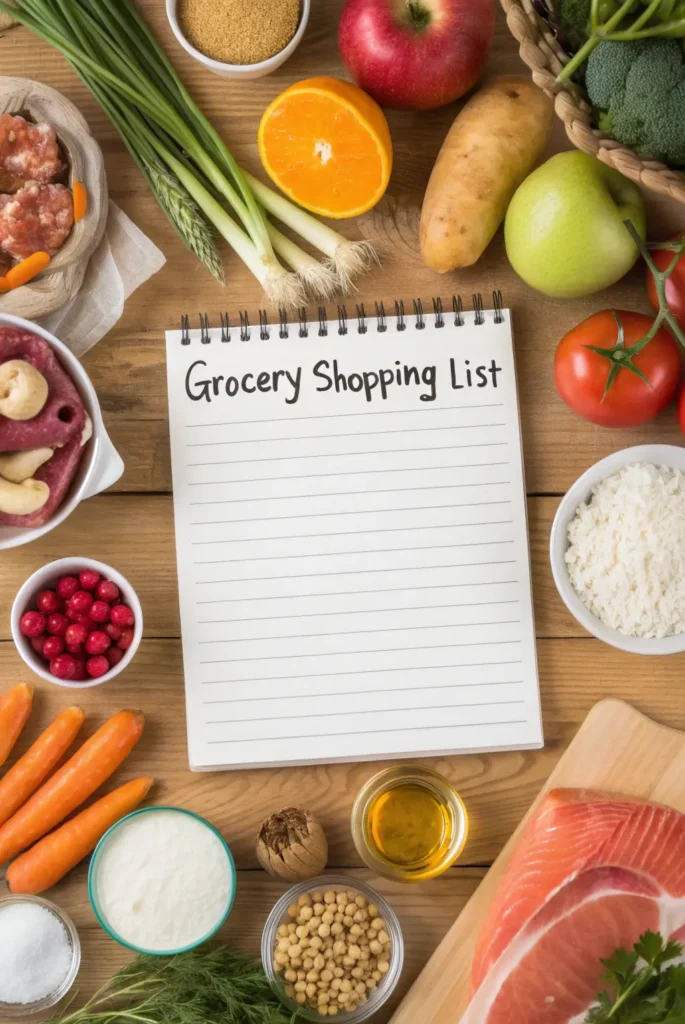
Creating a good grocery list is key for a successful vegetarian keto diet. Having the right ingredients makes it easier to follow your meal plan. It also helps ensure you get all the nutrients you need.
Pantry Staples
Start by stocking your pantry with keto-friendly items. These include:
- Nuts and seeds like almonds, walnuts, chia seeds, and flax seeds
- Healthy oils such as olive oil and avocado oil
- Condiments like full-fat mayonnaise, mustard, and sugar-free sauces
- Spices and seasonings to add flavor to your meals
Fresh Ingredients
You’ll also need fresh ingredients for your easy vegetarian keto meals. These include:
- Low-carb vegetables like leafy greens, broccoli, and cauliflower
- Vegetarian protein sources such as tofu, tempeh, and seitan
- Avocados and other healthy fats
- Full-fat dairy products or dairy alternatives
Optional Specialty Items
For specific dietary needs, consider these specialty items:
- Keto-friendly sweeteners like stevia or erythritol
- Vegetarian keto protein powders
- Low-carb granola or keto-friendly snack bars
With these essentials, you’re ready for successful vegetarian keto meal prep.
Meal Prep Tips for Success
Meal preparation is a game-changer for vegetarians following a keto diet. By dedicating time to prep, you can ensure you’re always on track with your dietary goals.
Weekend Preparation Strategies
Using your weekends for meal prep can be a huge time-saver during the week. Start by planning your keto recipes for vegetarians for the next few days. Make a list, shop for ingredients, and prep as much as you can in advance.
Storage Solutions
Investing in good storage containers is essential for keeping your meals fresh. Use airtight containers or bags to store your prepped meals. Label them so you know what you have and how long it’s been stored. This will help you stay organized and ensure your plant-based keto meal plan stays on track.
Essential Supplements for Vegetarian Keto Dieters
As a vegetarian keto dieter, it’s key to think about supplements to cover nutritional gaps. A vegetarian keto diet can help with weight loss and health. But, you need to plan well to get all the nutrients.
Vitamin and Mineral Supplements
Vegetarian keto dieters might need to take vitamins and minerals like vitamin B12, omega-3 fatty acids, and magnesium. These are important for energy, heart health, and feeling good. It’s important to pick high-quality supplements from trusted brands.
Protein Supplements
Protein is very important in any diet, and it can be hard to get enough on a vegetarian keto diet. Plant-based protein powders, like pea or hemp, are a good way to add protein. Look for protein supplements that are low in carbs, high in protein, and made from good sources.
Adding the right supplements to your vegetarian keto diet helps meet your nutritional needs. This supports your health and well-being.
Adjusting the Plan for Your Needs
Adjusting a vegetarian keto meal plan to fit your needs is key to success. It’s important to tailor the plan to meet your individual needs.
Calorie Modifications
Changing calories is important based on how active you are and your weight loss goals. If you’re very active, you might need more calories to keep your energy up. On the other hand, if you’re less active, eating fewer calories could help you lose weight.
| Activity Level | Calorie Adjustment |
|---|---|
| Sedentary | Reduce by 10% |
| Moderately Active | No change |
| Highly Active | Increase by 10-20% |
Accommodating Food Preferences
It’s also key to include foods you like in your vegetarian keto meal plan. You can swap out certain foods for others that fit the diet better.
- Choose low-carb vegetables like spinach and broccoli.
- Opt for vegetarian protein sources such as tofu and tempeh.
- Use healthy fats like avocado and olive oil.
Scaling for Different Activity Levels
Adjusting the meal plan for your activity level is important. This ensures you get the right nutrients without losing the diet’s benefits. For example, on busier days, you might need to change your food ratios.
By making these changes, you can make a vegetarian keto meal plan that fits your life and diet. This will help you reach your health and weight loss goals.
Conclusion
Starting a 7-day keto meal plan vegetarian can change your life. It can help you lose weight, improve your health, and even help the planet. Learning about a vegetarian keto diet opens up many benefits.
This diet uses plant-based proteins, low-carb veggies, and healthy fats. With the right help, you can handle its challenges and keep your diet balanced. The 7-day plan in this article is a great starting point.
Remember, be flexible as you start your keto adventure. With some creativity and planning, you can enjoy the vegetarian keto diet’s perks. Use the tips from this article to confidently begin your journey and reach your health goals.
Don’t forget to check out our other resources for more special diet topic inspiration:
- 7-Day Keto Meal Plan for Beginners
- 7-Day Keto Meal Plan for Weight Loss
- 7-Day Keto Meal Plan on a Budget
- Easy Keto Meals: How to Start (Simple 7-Day Plan)
FAQ
What is a vegetarian keto diet?
A vegetarian keto diet combines a ketogenic diet with vegetarianism. It focuses on high-fat, moderate-protein, and low-carb foods from plants.
How do I get enough protein on a vegetarian keto diet?
You can get enough protein by eating tofu, tempeh, seitan, eggs, and vegetarian protein powders. Also, include low-carb veggies and nuts in your diet.
What are some healthy fats for a vegetarian keto diet?
Healthy fats include avocados, olive oil, coconut oil, nuts, and seeds. They provide essential fatty acids and help keep you in ketosis.
Can I follow a 7-day keto meal plan vegetarian if I’m a vegan?
Yes, a vegan can follow a vegetarian keto diet. Focus on plant-based protein and healthy fats, and avoid animal products.
How do I maintain nutritional balance on a vegetarian keto diet?
Eat a variety of whole, nutrient-dense foods. Include low-carb veggies, protein-rich foods, and healthy fats. Consider getting advice from a healthcare professional or registered dietitian.
What are some common challenges of following a vegetarian keto diet?
Challenges include finding protein sources without meat and managing cravings for carbs. But, these can be overcome with planning and support.
How can I adjust a 7-day keto meal plan vegetarian to suit my needs?
Adjust the meal plan by changing calorie intake and food preferences. Scale it for your activity level. Get advice from a healthcare professional or registered dietitian.
What supplements are essential for vegetarian keto dieters?
Essential supplements include vitamin B12 and omega-3 fatty acids. Protein supplements are also important to ensure adequate nutrition and support health.
How do I meal prep for a vegetarian keto diet?
Meal prep by preparing healthy, keto-friendly meals in advance. Use cauliflower rice, zucchini noodles, and vegetarian stir-fries. Store them in glass containers and freezer bags.
Can I follow a vegetarian keto diet long-term?
Yes, a well-planned vegetarian keto diet can be followed long-term. It offers health benefits like weight loss and improved energy. It can be tailored to individual needs and preferences.
